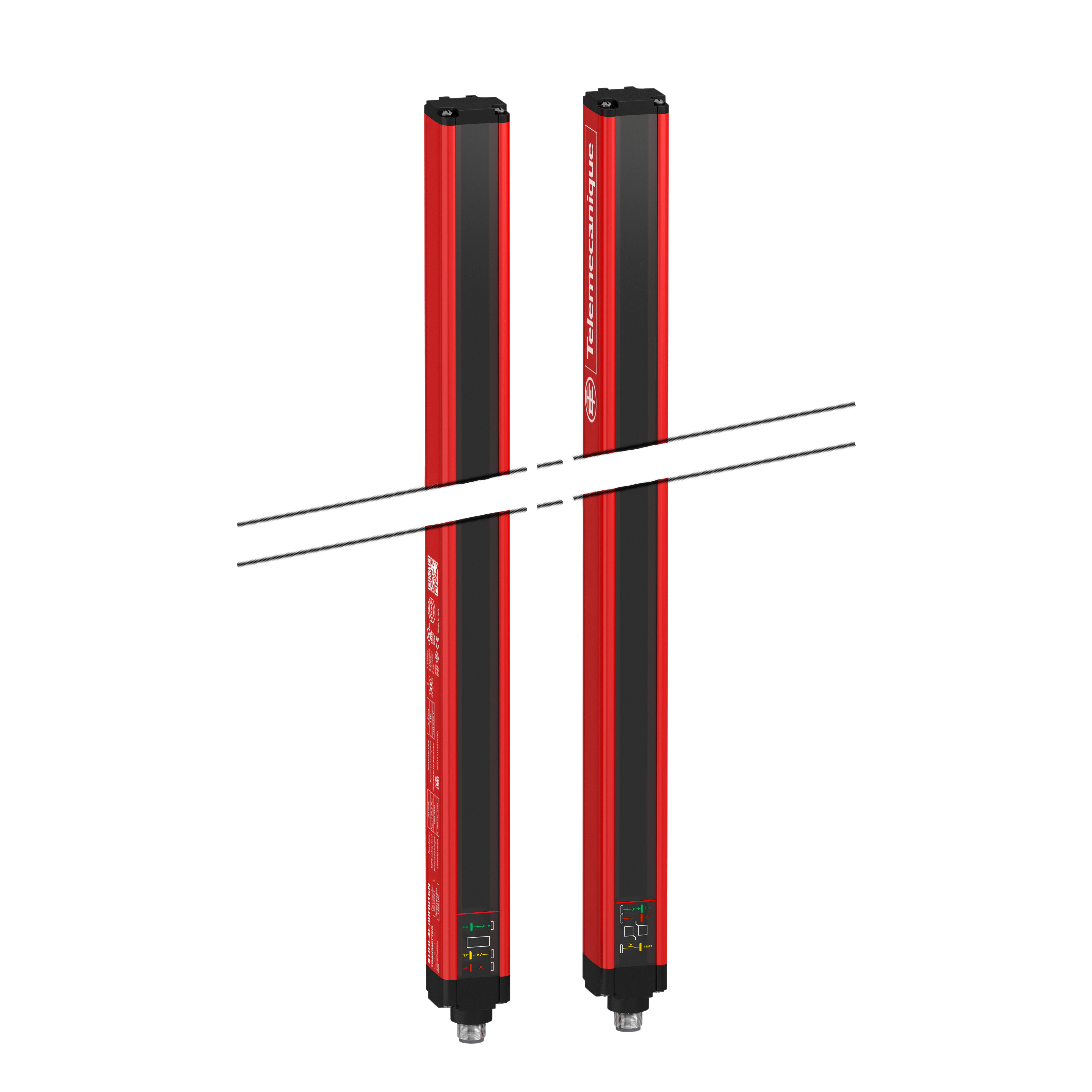Telemecanique XUSL2E4BB091N Type 2 Safety Light Curtain, 29.4 mm W, 910 mm H Protected, 0 to 12/0 to 4 m by Cabling Operating, 4 Beams, 1053 mm OAH
Safety Light Curtains
PDW~11801121
MFG #: XUSL2E4BB091N
Telemecanique Sensors
588.13000
/ ea
- Alternate Catalog Number: XUSL2E4BB091N
- Application: For body protection
- ARRA Compliant: N
- Buy American Compliant: N
- Catalog Number: XUSL2E4BB091N
- Country of Origin: IT
- Currency: USD
- EU RoHS Indicator: Y
- Gross Volume Per Pack: 2116.80
- Gross Volume per Pack Metric: 34688.00
- Gross Weight Per Pack: 7.9600 lb
- Gross Weight per Pack Metric: 3.61
- Gross Weight UOM Metric: kg
- Harmonization Tariff Schedule Code: 8541498000
- Height: 14.5000 in
- Height [Metric]: 14.5000 cm
- Item Group: 22455
- Length: 111.5000 in
- Length [Metric]: 111.5000 cm
- Material Composition Declaration: https://checkaproduct.se.com/DistantRequestDispatcher.aspx?action=export&pid=388526782&lang=en-us
- Response Time: 3.5 ms
- Returnable: Y
- Substitute Product Catalog Number: XZCP1164L5
- UNSPSC: 46171620
- UPC 11: 785901769200
- UPC 12: 785901769200
- Warranty Description: Contractual Warranty:18 months
- Width: 20.0000 in
- Width [Metric]: 20.0000 cm
- Brand: Telemecanique Sensors
- Manufacturer: Telemecanique Sensors
- Number of Beams: 4
Telemecanique Safety Light Curtain, Type 2, Series: XUSL2E, 29.4 mm W Size, 910 mm Protected Height, 0 to 12/0 to 4 m by Cabling Operating, 4 Beam, 1053 mm Overall Height, 3.5 ms Response, 5 deg at 3 m Aperture Angle, LED Light Source, 24 VDC Supply, 2 OSSD Solid-State PNP Arc Suppression Safety Output, 2 A Supply, 0.4 A Output Current, Automatic/Manual Reset, Aluminum Housing Material, IP65/IP67 Enclosure, 5-Pin M12 Male Connector Transmitter/8-Pin M12 Male Connector Receiver Connection, -13 to 158/-31 to 158/14 to 131/-22 to 131 deg F Storage/Operating
- Brochure URL - 11003_FSAPC3UNYMWQ7TJZ.pdf(Brochure URL)
- Computer~Aided [CAD|BIM] Model URL(Computer~Aided [CAD|BIM] Model URL)
- Install Instructions 1 URL - 11003_4ZAFEPLTN93RH5SY.pdf(Install Instructions 1 URL)
- Seller Home Page URL - us(Seller Home Page URL)
- Service Manual URL - 11003_OBK01E3LGP9D86YU.pdf(Service Manual URL)
- Spec Sheet URL - 11003_OCYN0723QMP4DZXV.pdf(Spec Sheet URL)
- User Manual URL - 11003_25LF9KWE07HSYV6B.pdf(User Manual URL)
- Applications
- Features
| For body protection |
| Test muting through external safety module XPSLCMUT1160 LED display of operating modes and faults |

